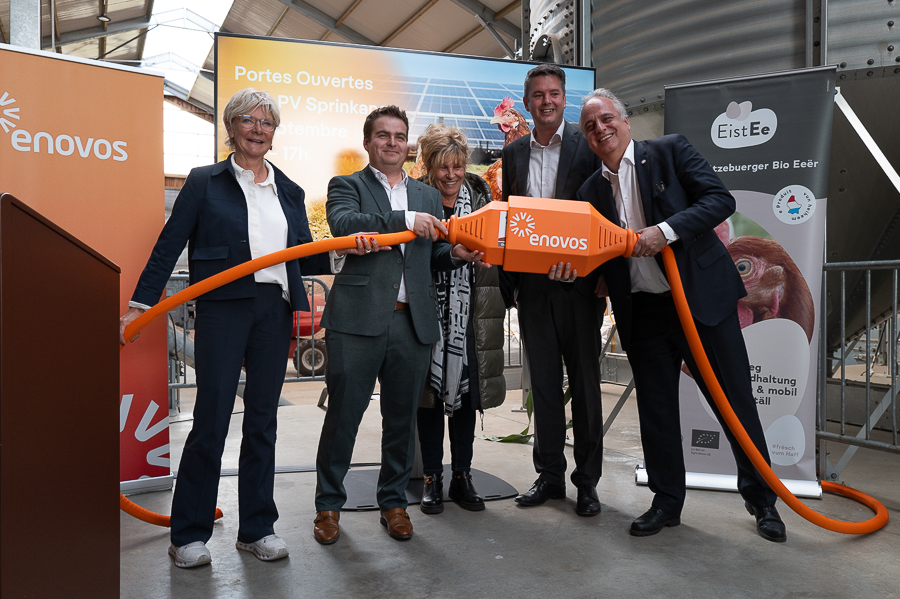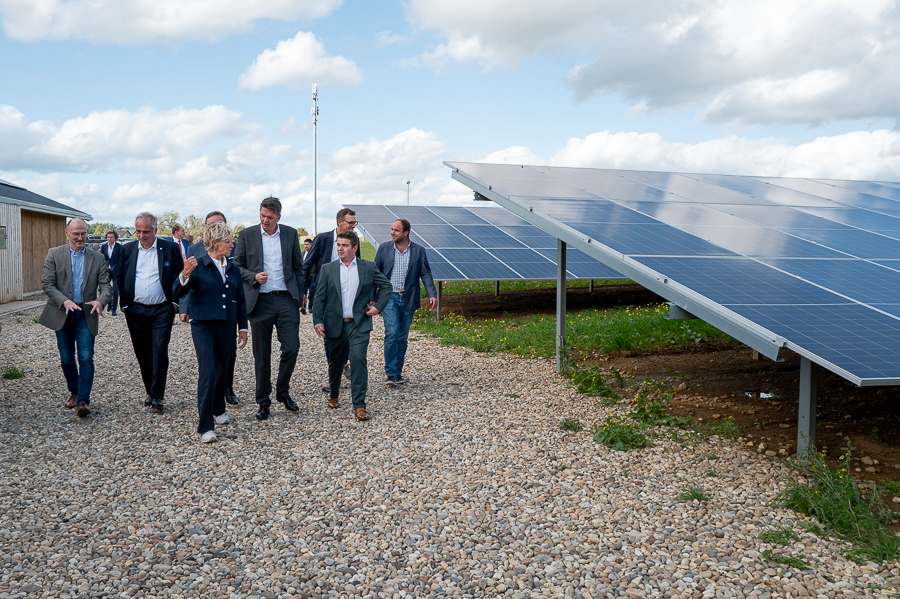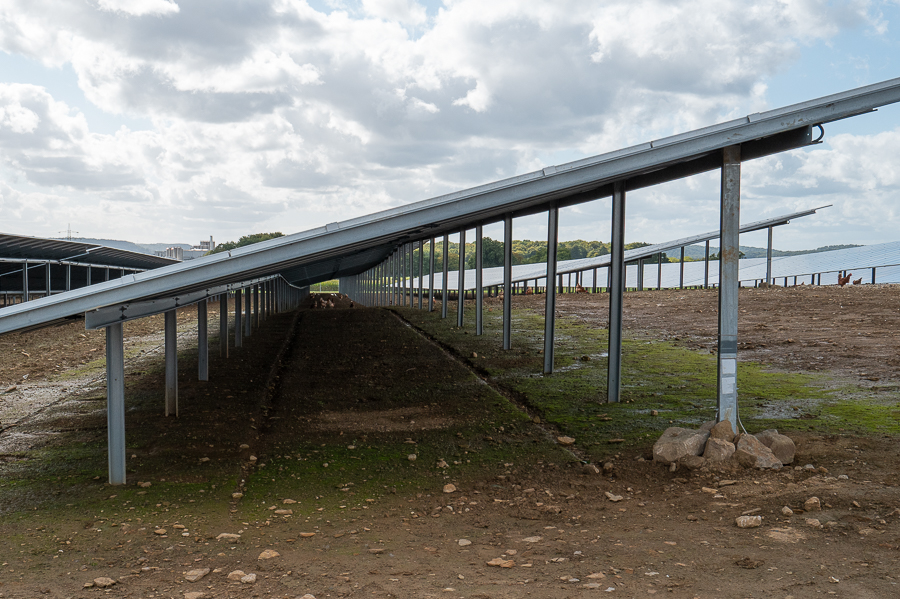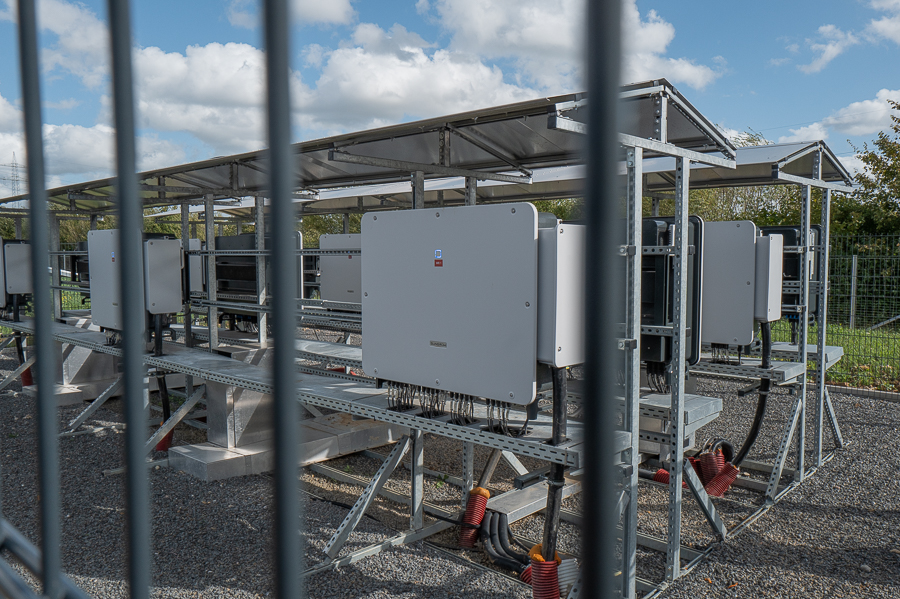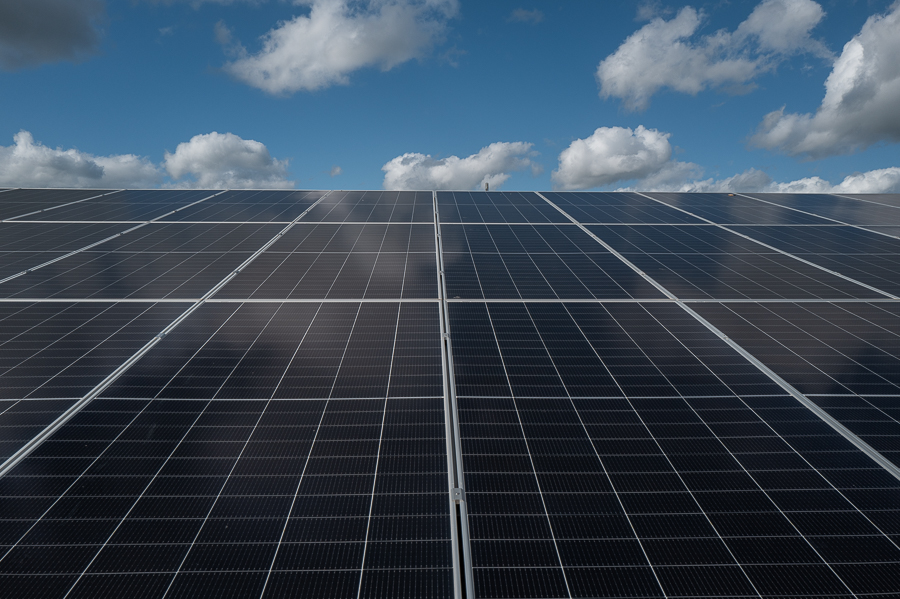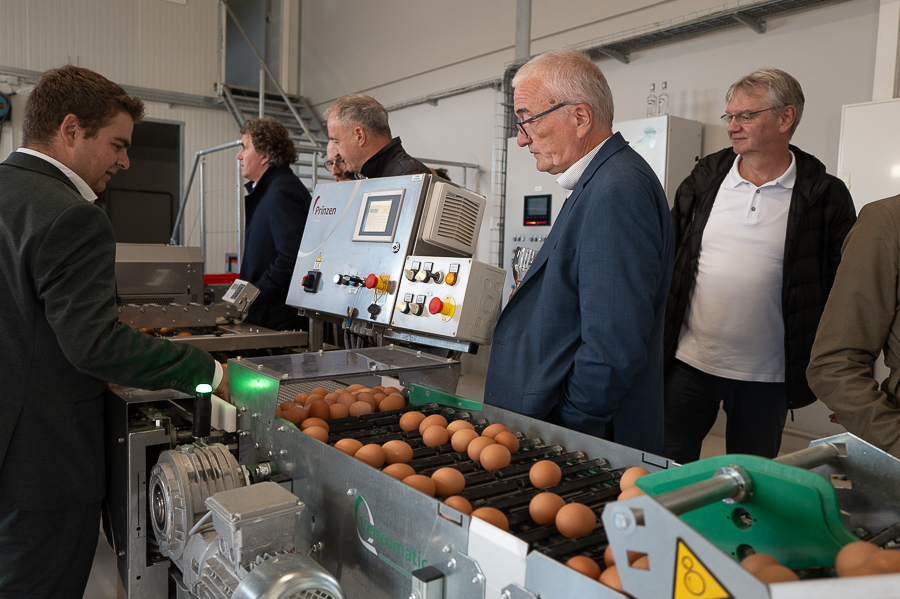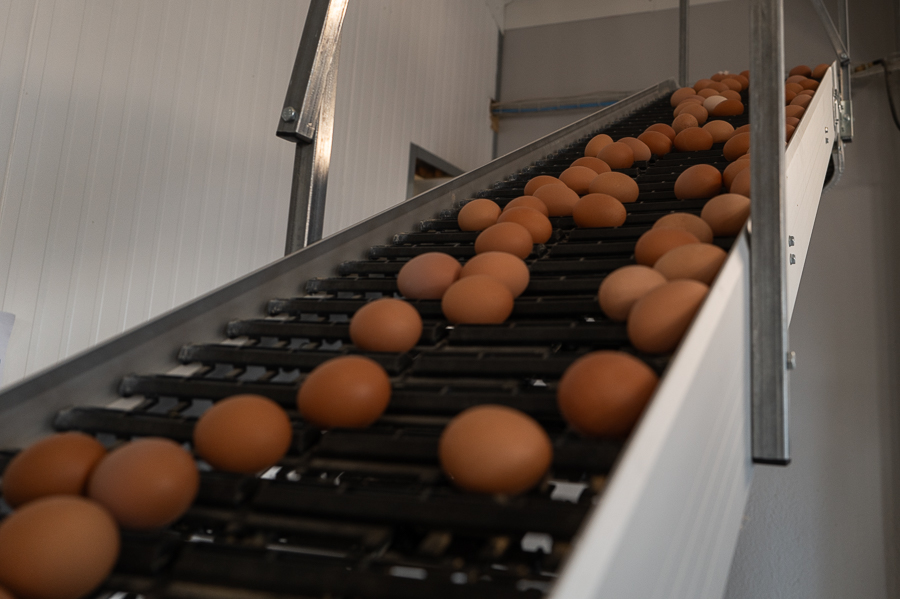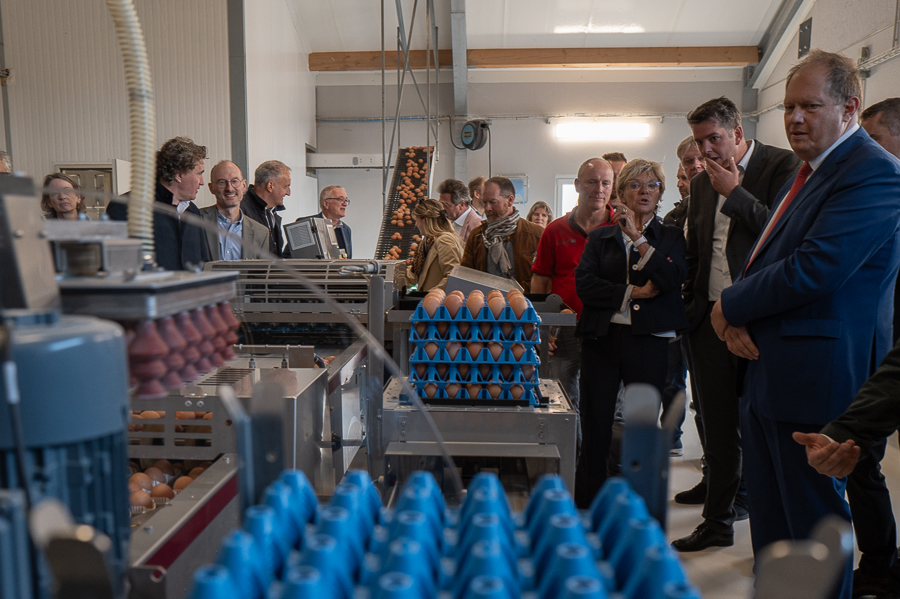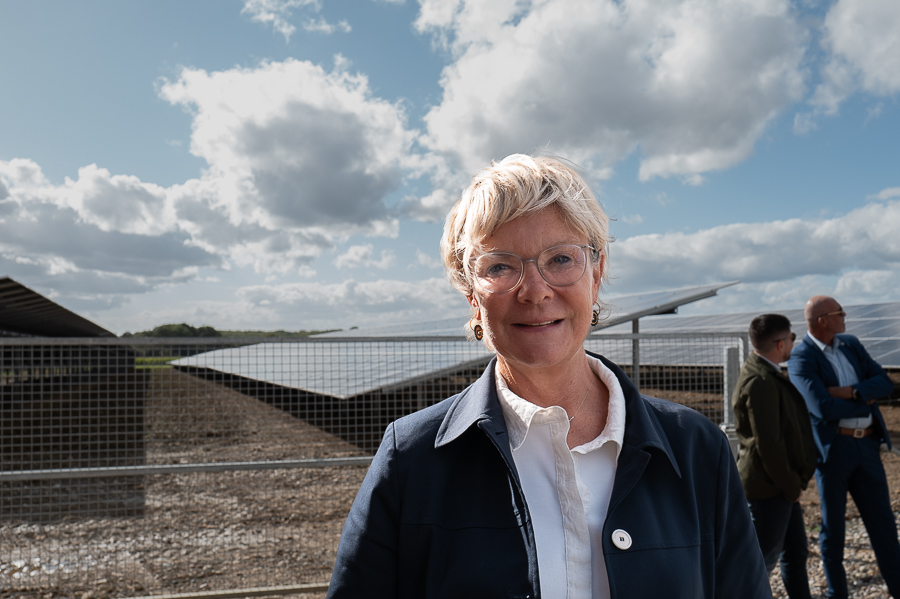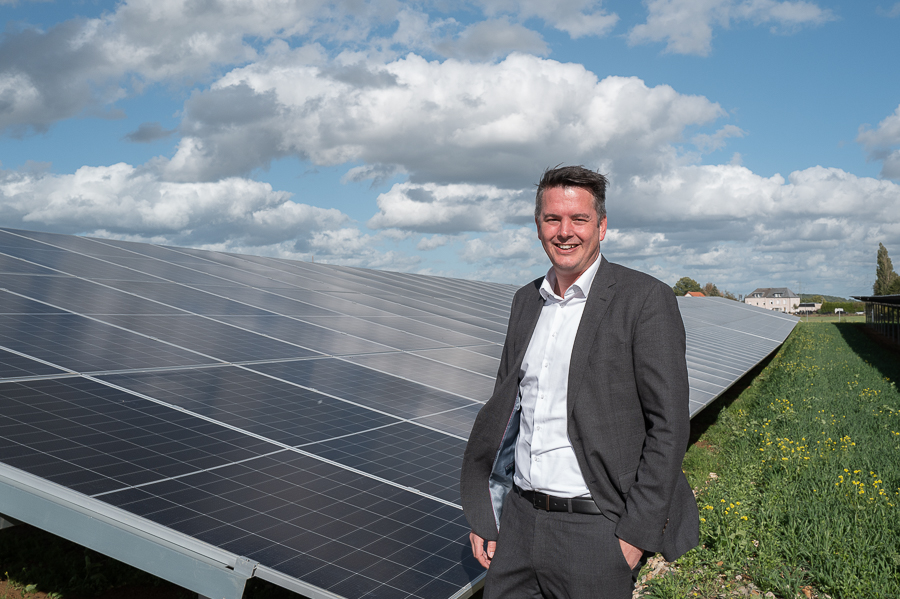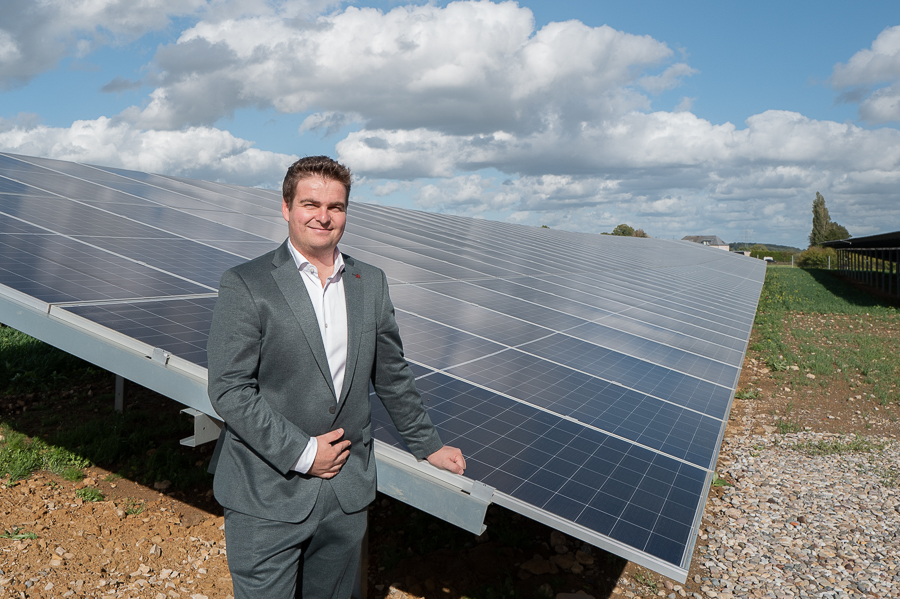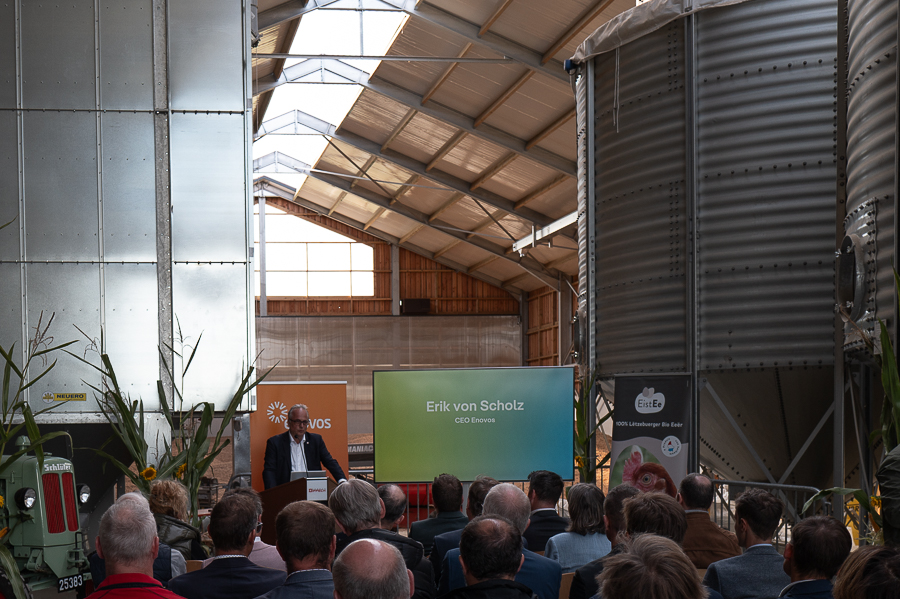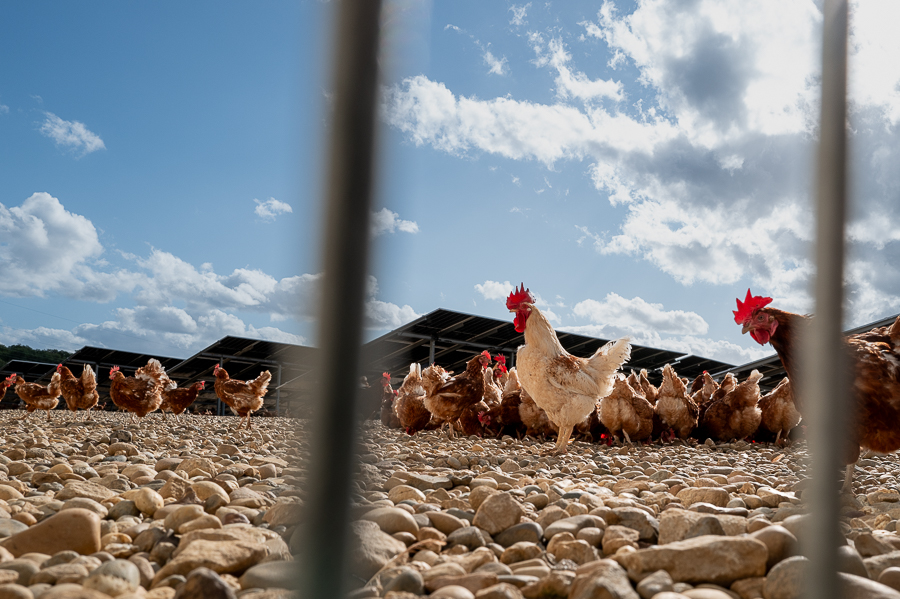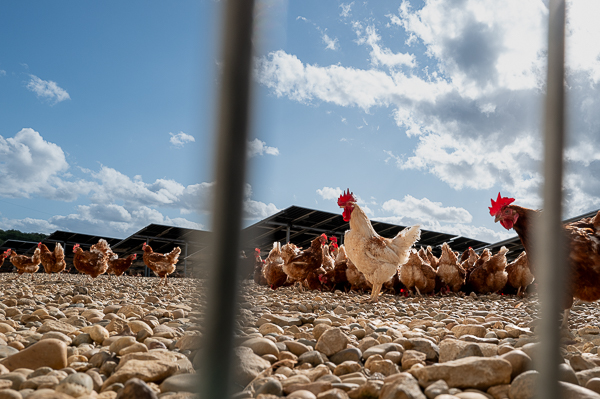 Credit: Ali Sahib, Chronicle.lu
Credit: Ali Sahib, Chronicle.lu
The inauguration of the agrivoltaics (agri-PV) site “An Dudel”, a joint initiative by Enovos and Dudel-Magie, took place in Sprinkange on Monday 15 September 2025.
The afternoon event featured speeches from: Erik von Scholz, CEO of Enovos Luxembourg; Luc Emering, MP, First Alderman of Dippach and farmer partner of the project; Martine Hansen, Luxembourg’s Minister of Agriculture, Food and Viticulture; and Lex Delles, Luxembourg’s Minister of the Economy, SMEs, Energy and Tourism. Following the speeches, attendees toured the ground-mounted solar power plant and later participated in a reception.
Speaking to Chronicle.lu, Erik von Scholz from Enovos said: “We started working on agri-PV quite some time ago. We participated in the first tender [...] and with some delay, we are finally realising this project, which I think is really a great experience. It stands for many more to come. I think this will really help Luxembourg to achieve its objectives with regards to installed renewable electricity.”
Luc Emering, the farmer at the site, explained that his family farm houses 6,000 chickens for organic egg production. “For us, the opportunity was there to make agri-photovoltaics because we can use our land in two different [ways]. On the one hand, it’s for the animals and their welfare. We have many wild birds [which pose a threat]. Since the photovoltaic [system] is here, we have less problems with these birds. […] On the other hand, it’s for energy production. For a family farm, it’s another economic income”. He also described some of the challenges of the project, particularly lengthy administrative procedures, but also costs. He said the investment is too great for a family farm: “We needed a partner who has the know-how and the financial capacity” to make the project feasible, “and there we found a good partner with Enovos”.
Minister Lex Delles highlighted the dual benefits of agrivoltaics: “We are working together for renewable energy with the agricultural sector. Here, it’s a special kind - with a farmer; he has protection for his chickens, where they can hide [from birds or bad weather]. On the other hand, you have a production here of 3.5 megawatts on these fields.” He noted that the PNEC national energy and climate plan aims to achieve 1,236 megawatts of renewable energy by 2030. Hence the importance of such projects: “That’s why we need the agricultural sector to work together in the questions of renewable energy. [...] We need activities like this - we need to have agricultural activity and production of renewable energy.”
Minister Martine Hansen also emphasised the balance between food production and energy generation: “For me, my ministry and also the government, it’s really important that we have the ‘agri’ [aspect]. The production of food must be a priority. So, we have food and energy, not food or energy. That is the main message.”

